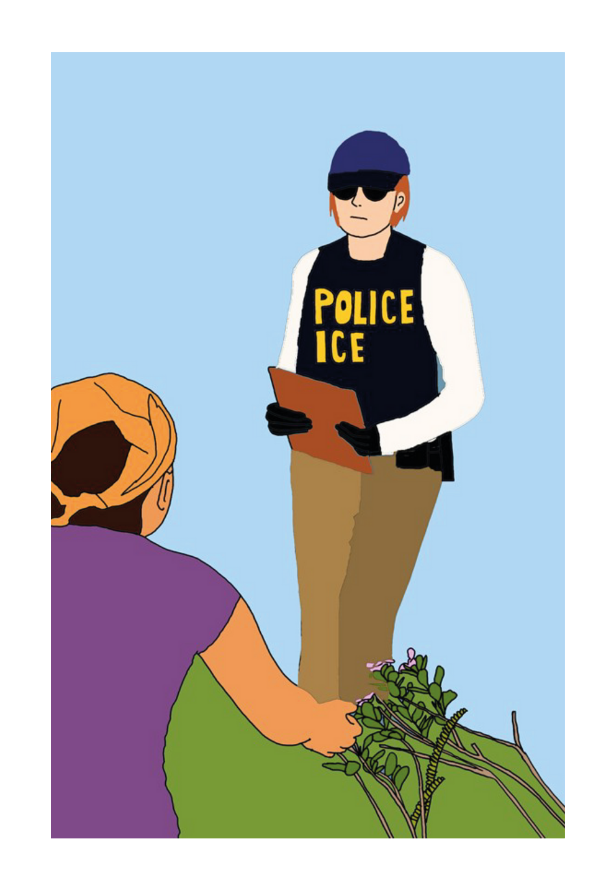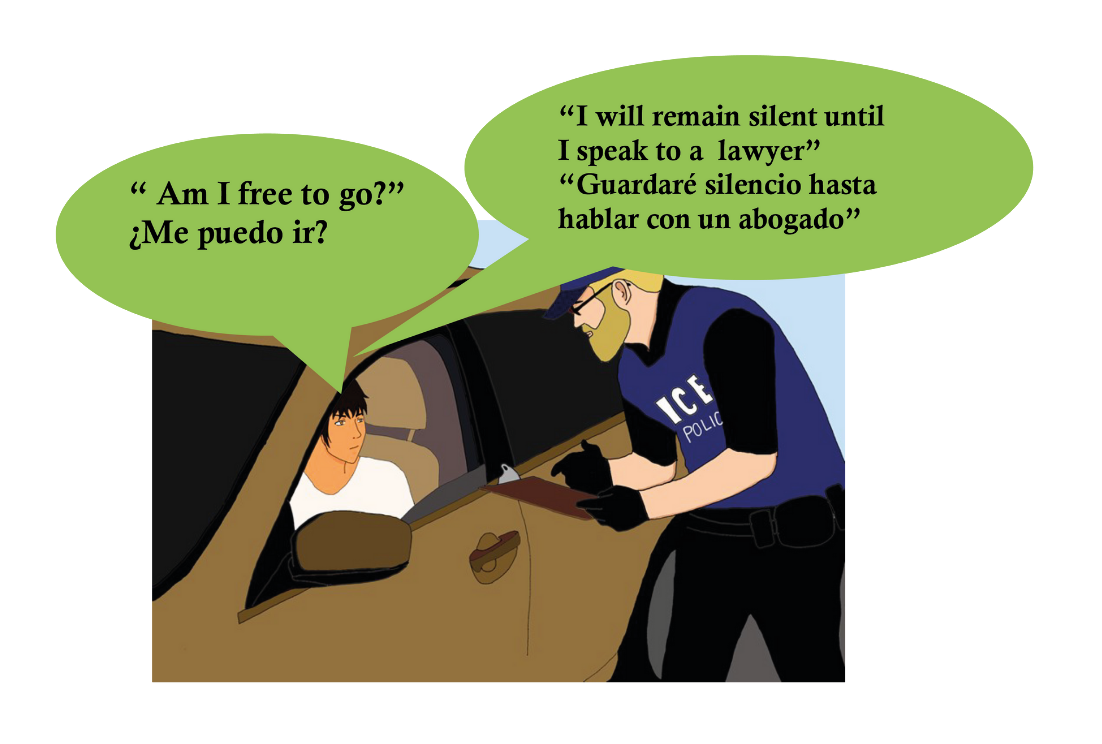La SB 1718 es una ley antiinmigrante que ha sido aprobada tanto por la Cámara de Representantes como por el Senado de Florida y entrará en vigor el 1 de julio de 2023. Organizaciones como Hope CommUnity Center están trabajando arduamente para continuar brindando servicios e información para apoyar a la comunidad. Nos solidarizamos con los inmigrantes y seguiremos luchando contra políticas perjudiciales como el SB 1718.
SB 1718 is an anti-immigration law that has passed both the Florida House and Senate and will go into effect on July 1, 2023. Organizations like Hope CommUnity Center are working hard to continue providing services and information to support the community. We stand with immigrants and will continue to fight against harmful policies like SB 1718.
Lo Que el Proyecto de Ley Propuso
What The Bill Proposes
Qué Cambió Luego de La Aprobación del Proyecto de Ley
What Changed After The Bill Passed?
Como Logramos Diluir La Ley
- Pusimos en marcha una campaña de cambio narrativo en los medios de comunicación centrada en el impacto de esta ley en la vida cotidiana de los floridanos.
- Saturamos las líneas de comunicación y dejamos claro a los legisladores de Florida que deseamos un estado inclusivo y acogedor.
- Nos movilizamos para dirigirnos a los distritos de los legisladores.
- Nos movilizamos a Tallahassee para el Día de We Are Florida y el Día de los Refugiados en el Capitolio.
- Hablamos y organizamos a nuestros vecinos y amigos.
La comunidad ha hecho un trabajo increíble en la oposición a estos proyectos de ley, tanto en el distrito como en Tallahassee.
How We Were Able To Water Down the Bill
- Implemented a narrative-shifting campaign in the media that focused on this law’s impact on the lives of everyday Floridians.
- Flooded the lines and let Florida legislators know that we want an inclusive and welcoming Florida.
- Mobilized to target the legislators’ districts.
- Mobilized to Tallahassee for We Are Florida Day and Refugee Day at the Capitol.
- Spoke and organized our neighbors and friends.
The community has done an incredible job publicly in opposing these bills both in the district and in Tallahassee.
Derechos que debes recordar y qué decir:

Rights you have to remember and what to say:
¿Qué hacer si ICE viene a mi casa o lugar de trabajo?

What to do if ICE comes to my house or workplace?
¿Qué hacer si ICE me detiene mientras camino o conduzco?

What to do if ICE stops me while walking or driving?
¡Ahora que tienes toda esta información, es hora de TOMAR ACCIÓN!
Busca la asesoría de un abogado de inmigración honesto y cuéntale todo. No te reprimas-comparte abiertamente tu historia y tus preocupaciones.
Verifica que estás registrado en tu iglesia, asociaciones u organizaciones. Es tu ancla de apoyo.
Prepara tu Plan de Dignidad. Una hoja de ruta para proteger tus derechos y tu dignidad en cualquier situación.
Haz un plan familiar para el cuidado de tus hijos y de tus finanzas, garantizando estabilidad y seguridad.
Asegúrate de que los miembros de tu familia y seres queridos conocen sus derechos.
Now That You Have All This Information, it’s time to TAKE ACTION!
Seek the advice of an honest immigration lawyer and tell them everything. Don’t hold back—share your story and concerns openly.
Verify that you are registered with your church, associations, or organizations. It’s your anchor of support.
Prepare your Dignity Plan. A roadmap to protect your rights and dignity in any situation.
Make a family plan for the care of your children and finances, ensuring stability and security.
Make sure everyone your family and loved ones knows their rights!
Recursos
Guía Sobre Encuentros Policiales y ICE en Florida Central
Tarjetas para imprimir "Conoce tus derechos"
Llama a la línea directa FLIC para:
– Informar de una redada en tu lugar de trabajo o domicilio.
– Denunciar un control de inmigración o una detención de inmigrantes por parte de la policía.
– Denunciar un delito motivado por el odio.
– Informarse sobre sus derechos constitucionales.
LÍNEA DIRECTA FLIC: 1-888-600-5762
Contacta al Programa de Immigración de Hope al 407-880-4673 ext. 238 para información sobre cuáles son los materiales necesario para un Plan de Dignidad.
Descarga tu Kit del Plan Dignidad AQUÍ.
PROTÉGETE DE FRAUDE. NO TOMES RIESGOS
Consulta con un Abogado de Inmigración. Nunca recibas consejos legales de un Notario, Consultor de Inmigración o un Paralegal.
AHORRA DINERO EN CASO DE UNA EMERGENCIA.
– Informar de una redada en tu lugar de trabajo o domicilio.
– Denunciar un control de inmigración o una detención de inmigrantes por parte de la policía.
– Denunciar un delito motivado por el odio.
– Informarse sobre sus derechos constitucionales.
LÍNEA DIRECTA FLIC: 1-888-600-5762
Resources
A Guide to Police Stops and ICE Encounters in Central Florida
Printable "Know Your Rights" Cards.
Call the FLIC hotline to:
– Report a raid at your workplace or home.
– Report an immigration checkpoint or immigration detention by police.
– Report a hate crime.
– Learn more about your constitutional rights.
FLIC HOTLINE: 1-888-600-5762
Contact Hope's Immigration Program at 407-880-4673 ext. 238 for information on what materials are needed for Dignity Plan.
Download your Dignity Plan Kit HERE.
PROTECT YOURSELF FROM FRAUD, DON'T TAKE RISKS
Consult with an Immigration attorney, never receive legal guidance from a notary, Immigration Consultant, or paralegal.
SAVE MONEY IN CASE OF AN EMERGENCY.
– Report a raid at your workplace or home.
– Report an immigration checkpoint or immigration detention by police.
– Report a hate crime.
– Learn more about your constitutional rights.
FLIC HOTLINE: 1-888-600-5762
Learn about the Anti-immigrant law in Portuguese and Creole.